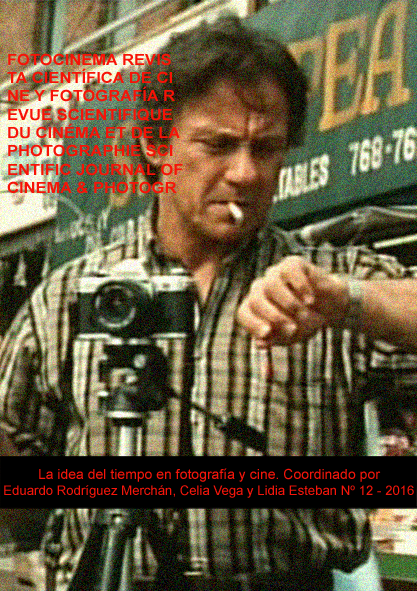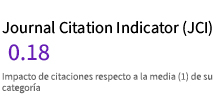Sobre la función legitimadora en Solas (Zambrano, 1999) y La gran familia española (Sánchez, 2013)
DOI:
https://doi.org/10.24310/Fotocinema.2016.v0i12.6047Abstract
El artículo expone las digresiones que motivan una lectura intertextual que se construye a partir de dos textos cinematográficos de factura española, y que toman como referente esencial la función del Padre o Padre de la Ley, tal como es trabajado desde el psicoanálisis, cuya función es la de legitimar un orden social. Para lograr este esfuerzo, nos apoyamos en un modelo lector inspirado en el Paradigma Indiciario. Los resultados de esta comprensión dejan ver cómo las circunstancias económicas y políticas de las naciones revelan que las dificultades en el cuerpo de la nación son el correlato de la crisis de quien encarna la Autoridad, la cual ha transmutado en otros rostros de legalidad como la figura de un Rey o la del deporte Rey (el fútbol). De esta forma, se concluye que el poder de El Padre, representante de la ley, ya no actúa ordenando la sociedad, sino desestructurándola, no sin antes dejar la ilusión de una cohesión, tan efímera como consoladora.Abstract:
This article exposes the digressions that drive us to a comprehensive reading of two Spanish films taking as essential element the role of ‘the Father’ or ‘Father of the Law’ as it is worked from psychoanalysis, which function is to legitimize a social order. To get to this goal, we will be supported by a reading model inspired in the Paradigma Indiciario. The results of this comprehension let us see how economic and political nations circumstances, reveal us that nations difficulties have a correlation with the crisis of who embodies the authority, which it has been transmuted into other faces of legality as the figure of a King or the King of sports (soccer). On this way, it is concluded that the power of The Father, the representative of the law, no longer acts ordering the society, but des-by structuring it, but not before leaving the illusion of a cohesion, as ephemeral as comforting.
Palabras clave:Texto cinematográfico; logopatía; función legitimadora; Padre de la Ley; adbucción; indicio.
Keywords:
Film Text; Logopathy; Legitimizing Function; Father of the Law; Abduction; Index.Downloads
Metrics
Publication Facts
Reviewer profiles N/A
Author statements
Indexed in
-
—
- Academic society
- N/A
- Publisher
- Universidad de Málaga
Downloads
Published
How to Cite
Issue
Section
License
All contents published in Fotocinema Revista científica de cine y fotografía are protected under the Creative Commons Attribution-NonCommercial-ShareAlike 4.0 International (CC BY-NC-SA 4.0) license. All about this license is available in the following link: <http://creativecommons.org/licenses/by-nc-sa/4.0>
Users can copy, use, redistribute, share and exhibit publicly as long as:
- The original source and authorship of the material are cited (Journal, Publisher and URL of the work).
- It is not used for comercial purposes.
- The existence of the license and its especifications are mentioned.
There are two sets of authors’ rights: moral and property rights. Moral rights are perpetual prerogatives, unrenounceable, not-transferable, unalienable, imprescriptible and inembargable. According to authors’ rights legislation, Fotocinema. Revista científica de cine y fotografía recognizes and respects authors moral rights, as well as the ownership of property rights, which will be transferred to University of Malaga in open access. The property rights are referred to the benefits that are gained by the use or the dissemination of works. Fotocinema. Revista científica de cine y fotografía is published in an open access form and it is exclusively licenced by any means for doing or authorising distribution, dissemination, reproduction, , adaptation, translation or arrangement of works.
Authors are responsable for obtaining the necessary permission to use copyrighted images.














13.png)



